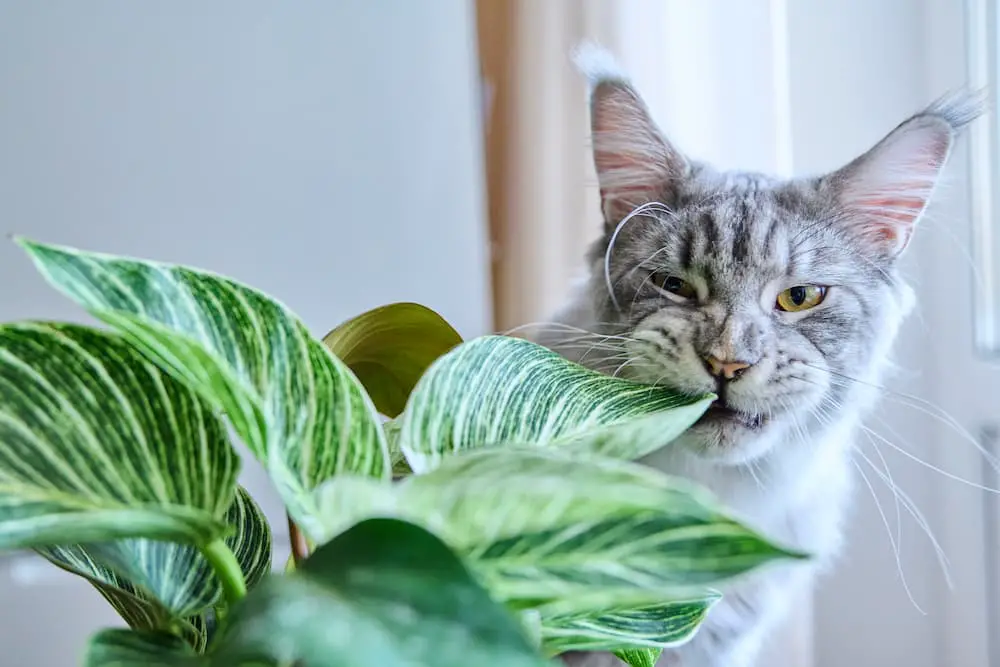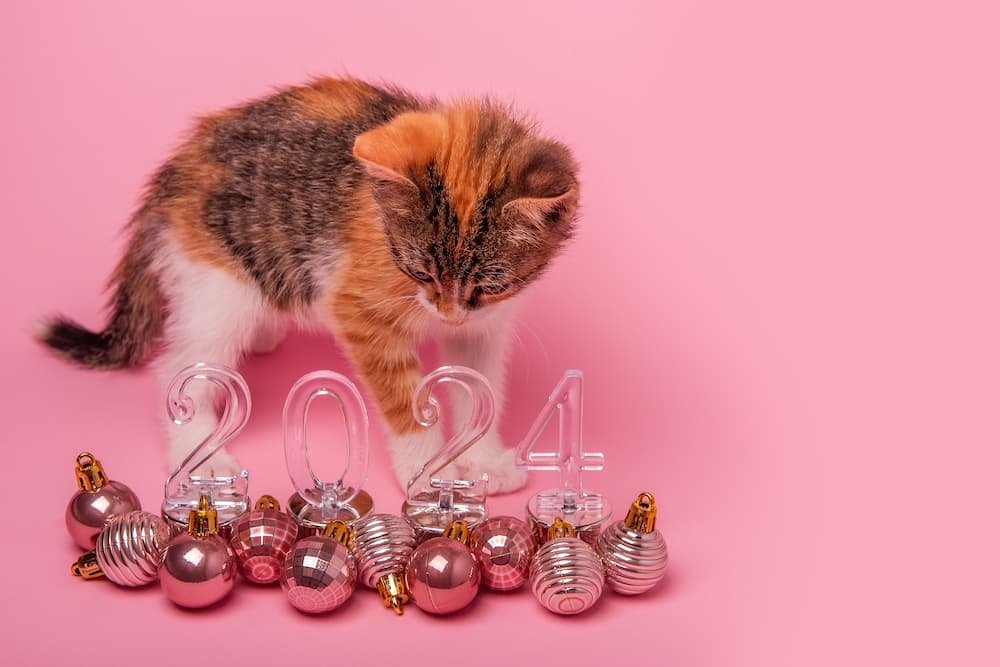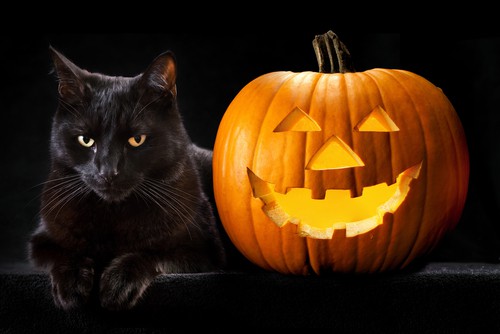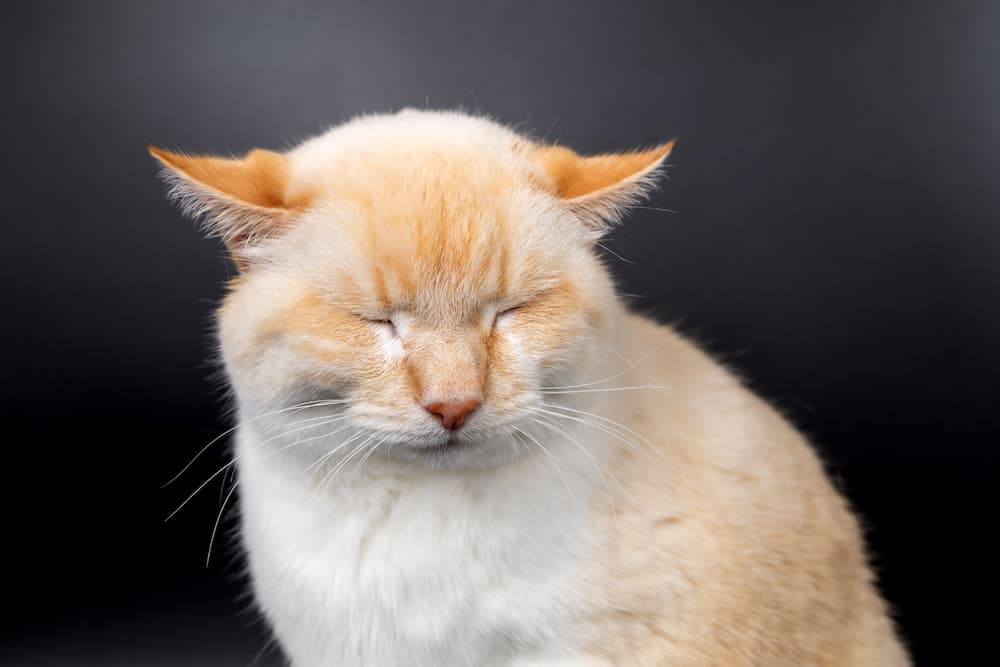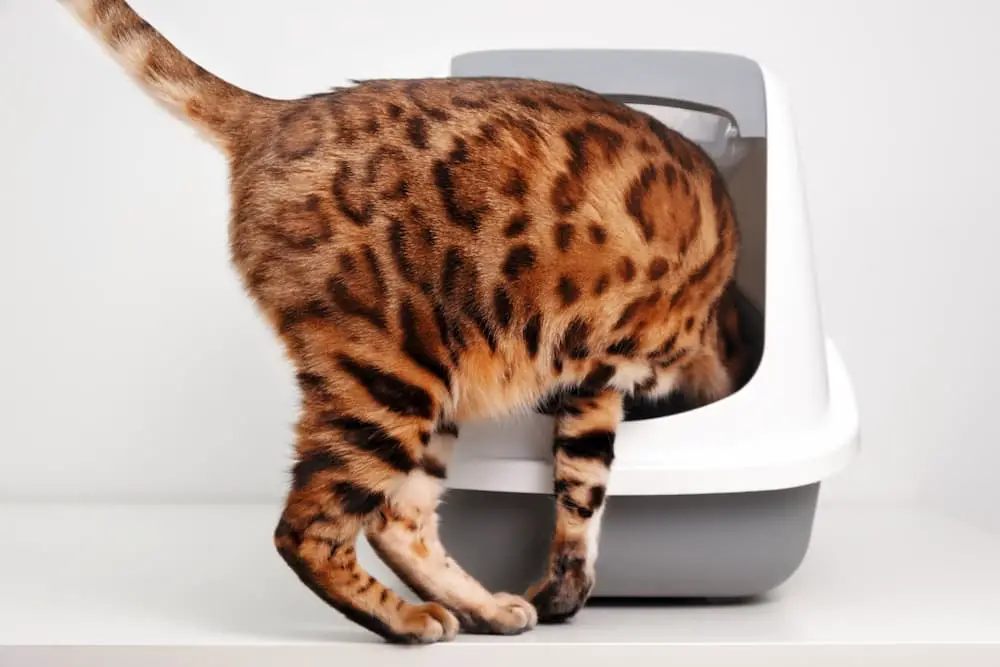It happens all too often — by the time an owner realizes her cat is sick, the cat is very sick. This is due to cats’ instinctive nature to hide any illness – and they’re very good at it! However, most sickness is best treated early. So, it’s important for cat parents to recognize the early warning signs that your kitty may be under the weather. Here are 9 signs that might indicate your cat is sick.

1. Change in Appetite
A sudden decrease in your cat’s appetite can be a sign of many different problems – from dental issues to an upper respiratory infection. Not only that, but if a cat doesn’t eat for a few days, he is in serious risk of hepatic lipidosis, or liver failure.
Eating less is an obvious sign that a cat is sick, but did you know that if your cat starts eating or drinking a lot more than usual, that can be a bad sign, too? An increase in your cat’s food or water intake might be an indication of kidney disease, diabetes, and hyperthyroidism.
2. Stinky Breath

If you notice an odor coming from kitty’s mouth, the most common cause is dental disease, due to bacteria in the mouth. The best way to avoid this is to routinely brush your cat’s teeth at home, using a cat toothbrush and special toothpaste for cats. Don’t use regular toothpaste – as some of the ingredients could actually be toxic!
Dental disease isn’t the only cause for cat’s bad breath, though. A variety of conditions can lead to stinky cat breath, such as diabetes, kidney disease, sinusitis, and GI problems. Even some types of trauma can cause stinky breath in cats. If your kitty has a foul mouth, it’s best that he or she is seen by a veterinarian to determine the cause.
3. Accidents Outside the Litter Box

There are many reasons a cat might stop using the litter box. Sometimes, especially if the behavior is new, this can be an indication that kitty is sick. Some medical problems that cause inappropriate elimination are urinary tract infections, feline cystitis, and even kidney stones. The first thing any cat parent should do if kitty stops using the litter box is take him or her to the vet to rule out any medical reason. Ignoring this could be fatal if the cat develops a urinary blockage.
Once you rule out any medical causes for inappropriate elimination, be sure to clean any messes with a bacterial-enzyme cleaner to completely remove it. Otherwise, your cat may return to the same spot over and over.
4. Weight Change
Many people worry about their cats getting fat, but unintentional weight loss can be very serious, too. Whether your cat is eating or not, if you notice him losing weight, it is important to have your cat seen by a veterinarian. There are many causes for weight change in cats. Anxiety, stress, depression, cancer, diabetes, FIP, dental disease, GI problems like inflammatory bowel disease, hyperthyroidism, and parasites.
5. Change in Behavior
If your cat is typically clingy and begins acting uncharacteristically aloof, or if your very independent kitty suddenly becomes clingy, these are subtle signs that he or she may be ill. Hiding is also a classic sign of sickness. Don’t assume that if your cat is purring, he is okay. Cats will purr if they’re sick or in pain, too. If your cat is normally quiet but starts meowing a lot, or vice versa, this could be an early indication that something is wrong.
6. Change in Appearance

If your cat stops grooming himself, or his coat becomes dull or greasy, these are indications that he’s unwell. Increased shedding is another sign of hyperthyroidism. Hair loss could be a sign of allergies.
7. Lethargy
Sick cats sleep more than usual. If you notice your kitty seems tired, lethargic, and disinterested in playing, keep him under close observation. If he’s excessively tired for more than 24 hours, he should be seen by the vet.
8. Changes in the Litter Box
If you notice your cat’s waste is irregular, if she has diarrhea, goes to the box more or less frequently than normal, or if there’s a stronger-than-usual odor, tell your vet. Cats with diabetes will urinate very frequently, as well as cats with urinary tract infections. Diarrhea might be a sign of nervousness, food sensitivities, irritable bowel, parasites, and many other illnesses. If you notice your kitty straining to poop, or passing only small hard feces, he is likely constipated. Check your cat’s litter box regularly to be sure everything looks as it should. You might also try using a cat litter that tests your kitty’s pH and changes color to warn you if there’s a problem.
9. If Something Seems “Off”

Never underestimate your own instincts as a cat parent. Very subtle changes, that only you notice, could mean a lot for a cat who instinctively hides illness. You know your cat best! So, if something doesn’t seem right with your furry family member, follow your gut and have it checked out – no matter how small.
If you’ve had a cat that was sick, what was the first sign you noticed? Tell us below!
If you found this article helpful, pin it!


